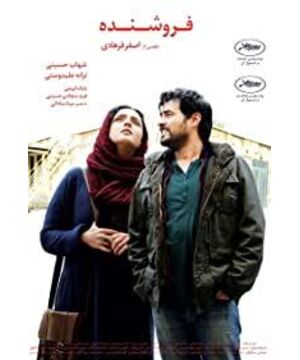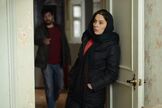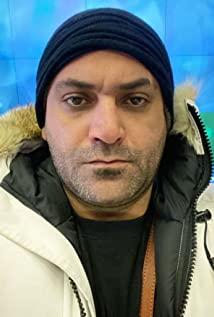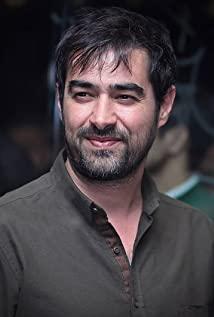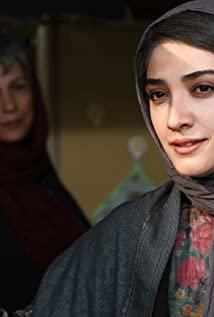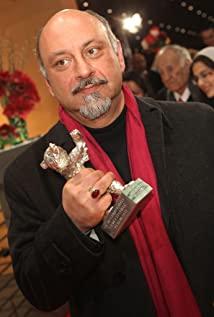"The Salesman", Iranian film. The first film I saw at the 2017 Hong Kong International Film Festival.
Compared with the original title of the film "Salesman", the Hong Kong translation of "Iranian Relocation" is more direct. This is indeed a very "Iranian" story (the difficulty and impact of cultural identification is great for foreign audiences), and it is indeed a story triggered by relocation (moving).
After watching it, I especially understand the troubles of my peers - the point that this film resonates with the audience in the final analysis is the highly patriarchal culture and traditional ideas of Iran. The movie tells about an extremely rare and special accident (so it did have a reversal effect when the secret was finally revealed), which fermented and collapsed step by step in a highly patriarchal environment, and finally turned into a tragedy with two losses.
The title "Salesman" is very clever: on the surface, it refers to the extra line (play within the play) of the film, that is, Arthur Miller's classic play "Death of A Salesman" ("Salesman") rehearsed by the protagonist couple for the school theater. Death of a Member"). At the end of the movie, the two couples were unable to face themselves because of the indirect murder, and finally completely died, becoming the "Death of a Salesman" outside the play, which echoes the title of the movie and the play in the play. The so-called drama is life.
Talk about the film's narration, shooting, and soundtrack. I call this type of film "atypical literary film": it is extremely delicate, but it is not like the so-called "artistic film". The narrative uses the technique of suspense films, explaining the accident from the beginning of the film, then taking the audience and the male protagonist to find the "intruder", and finally deciphering the "real murderer" is unexpected and shocking. The shooting methods are also quite old-fashioned: the long shots, the scenes within the play, the details showing the struggle of the heroine, and the confrontation between the hero and the "suspected intruder" are all very exciting. The soundtrack is also in place, which adds a lot to the rhythm control of the film.
With a good story, good footage, and good editing, can you win the best foreign language film? I think the reason why the film felt "shocked" rather than "well shot" after I saw it was because of its culture shock, that is, to a certain extent, a kind of cultural characteristic of Iran's extreme patriarchal tradition. "torture". So let’s talk more about the importance of the “patriarchal” cultural foundation to the film: the Iranian patriarchal cultural tradition in the film is naturally reflected in various aspects, but there are two points that promote the plot and even the final outbreak and tragedy are worth mentioning. .
The first is the husband's patriarchal complex, which is reflected in two places: one is that the wife is reluctant to report to the police after the accident, but she struggles so much that she is clamoring to move. At this time, the husband's reaction was not to help his wife move out as soon as possible, but to be neurotic and stubborn to find out the intruder that night, in order to "give an account to neighbors, friends, and everyone." Regarding his wife's struggle, he indifferently gave two choices: "either report the case, or you can completely forget about it and live a good life". The "extreme patriarchy" here is reflected in "men want face more than anything else", and the male protagonist who lives in the eyes of the outside world "find out the intruder" is no longer for his wife, but for his own face.
The second is the patriarchal complex of the intruder (the old man), that is, "killing but not humiliating". By the way: the confrontation between the intruder (the old man) and her husband at the end of the movie is the most intense and the best male confrontation I have ever seen in a movie. After the identity of the "intruder" of the old man was revealed, the confrontation with her husband was really great: the old man's apology was mixed with the inviolable pride that he barely maintained, and the dodging of his words carried the embarrassment that he was still trying to excuse himself. At the same time, compared to her husband's steadfastness and aggressiveness, the performance was so wonderful that it was beyond words. The old man went from a reluctant apology to an embarrassing excuse, and finally gave up completely, confessed his guilt and begged the male protagonist not to tell the truth in front of his family. In the game between the two, the old man's psychological and "status" changes have forced him to a dead end . Although the male protagonist did not expose the old man in the end, the slap in the face of the old man in private in the end was the outbreak of the male protagonist's "patriarchal complex", and it was also the "last straw" that caused the old man to have a heart attack and completely give up his idea of survival. "Scholars can be killed but not humiliated" is the ultimate manifestation of the patriarchal complex of the elderly, and it is also the root cause of indirect murder by husbands (or husband and wife).
Finally, I want to say that I am very fortunate that I went to the cinema to see this film. The detailed performances of many actors would be very discounted if they were not seen on the big screen, and the narrative editing and rhythm of the film are also very suitable for watching in theaters. The first film I saw at the Hong Kong International Film Festival this year was so depressing but so exciting.
View more about The Salesman reviews


